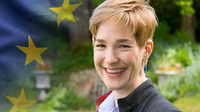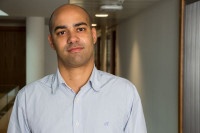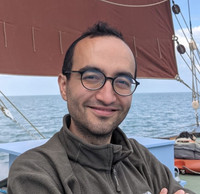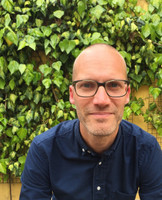
Every Monday, a member of the international academic association ‘UACES’ will address a current topic linked to their research on euradio.
Bonjour, Natasza Styczyńska, very pleased to have you back at Euradio. Today, in 2024, you are Professor at the Jagiellonian University in Krakow. But what were you doing when Poland became a member of the European Union, twenty years ago, on the 1st of May 2004?
I was a student, in my fourth year of political science studies! Membership negotiations and the opening prospects for education and work across Europe made a huge impression on my generation but also intimidated us. We didn’t quite believe that we would really become part of the world we knew only from our holiday escapades or from literature.
A year before the “Big-Bang Enlargement”, I took part in an Erasmus exchange – it was only the second Erasmus cohort at my faculty. I studied law and international relations for a semester at the Aristotle University of Thessaloniki, and today I can say that Erasmus mobility was a formative event for my generation. After Poland joined the EU, Erasmus became a very popular programme, broadening the horizons of many Polish students and researchers, as well as strengthening their European identity.
In 2004, I also decided to start a second master programme, this time in European Studies, and this decision influenced the rest of my professional life.
How was the general atmosphere in Poland at that time?
The day of accession itself had the character of a holiday. It was widely celebrated, although it was also accompanied by feelings of uncertainty and curiosity.
For me, the most interesting moment was actually the year before, especially the campaign before the accession referendum. It was then that I realised that the Polish foreign policy objective number one – “Go West!” – was not a desirable direction for everyone, and that the level of fear in some social groups is huge.
The campaign was very emotional, and those who called for a “no” vote in the referendum used sovereignist arguments, comparing the European Union to the Soviet Union, which, for obvious reasons, did not enjoy much sympathy in Polish society.
It was also interesting to observe how the Catholic Church, most of whose hierarchs saw integration as a threat to the traditional model of life and identity, became a political actor involved in the campaign.
The votes of the Euro-rejectionists did not prevail, and an overwhelming majority of 77.5 % voted in favour of joining the EU (with a turnout of 59 %). However, the whole discussion deepened social polarisation and EU membership was never sufficiently well explained to all social groups nor became part of the school curriculum. It was the referendum campaign that made me interested in the opposition to European integration.
And today, Eurosceptic movements have become a major part of your research. How do you look back on the twenty years since May 2004?
These twenty years are also a history of enormous social, lifestyle, economic and political changes. Poland is the largest beneficiary of EU membership among all countries in the region that joined the Community in 2004 and later. Between 2004 and 2022, Poland's GDP has doubled. This evolution is noticeable, especially for those who visit Poland only once every few years.
Politically, these two decades also meant huge changes. From being the frontrunner of the integration process, we temporarily became an EU troublemaker during two populist and anti-European governments, both under the leadership of the “Law and Justice” party, between 2005 and 2007, and more recently, between 2015 and 2023.
But there were also moments when we changed from a “policy taker” to a “policy maker”, an example of which is the Eastern Partnership, a programme that put the spotlight on the Eastern neighbours of the European Union.
How strong do you think is the feeling of belonging to the European community?
Despite the benefits, it is not omnipresent, especially in the older generation. Moreover, parts of the youngest Poles seem to treat membership for granted as a result of insufficient education and politicizing of the European issues. Creating a feeling of belonging and a solid institutional system will take a few generations more. This goes in line with an observation made by the great sociologist Ralf Dahrendorf: according to him, the formal process of constitutional reform takes at least six months; the economic reforms up to six years; but creating social foundations, which guarantee the stability of the constitution and economy in difficult times takes more than sixty years.
Thank you very much, Natasza Styczyńska, for your testimony and reflection. I recall you are Professor at the Jagiellonian University in Krakow. All the best for the next twenty years!Entretien réalisé par Laurence Aubron.






